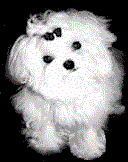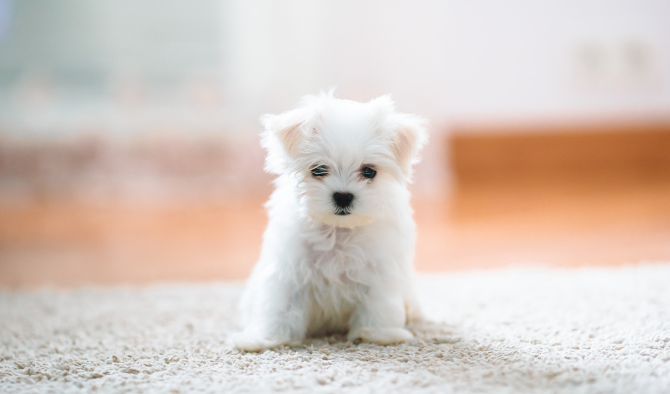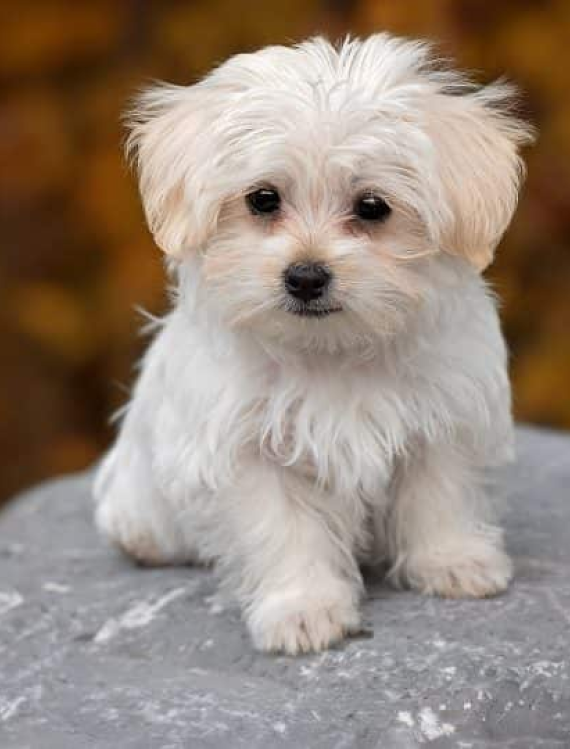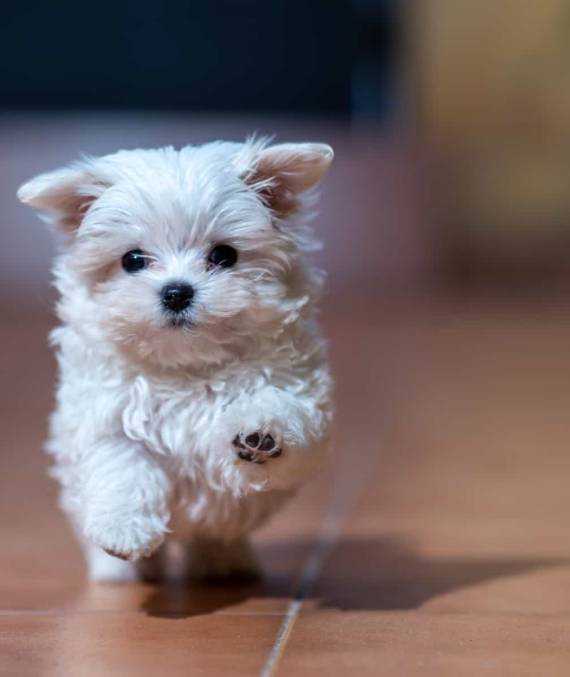

- Phone
- Email puppypetite@aol.com
-
Address
8002 17th Ave, Brooklyn NY 11214

How To House Train A Maltese Puppy
Getting To Know Maltese Puppy Breed
The Maltese is a toy dog breed that originates from the Mediterranean island nation of Malta. Known for their compact size, with adults typically weighing less than seven pounds, and their distinctive coat of long, silky white hair, Maltese puppies are a favourite among dog lovers worldwide.


Appearance
Maltese puppies are tiny, usually measuring less than 10 inches. They are easily recognisable by their dark, round eyes and black noses, which beautifully contrast their pure white fur.
Temperament
Maltese puppies are known for their spirited and playful nature. They are lively and enjoy games, but they also love to cuddle with their owners. Despite their small size, they are fearless and can be somewhat assertive.
Grooming
The Maltese breed has a hypoallergenic coat, meaning they are a good choice for people with allergies. Their beautiful white hair requires regular grooming to maintain its pristine appearance.
Training
Maltese puppies are intelligent and can learn quickly, making the potty training process a relatively straightforward process. However, they can be a bit stubborn at times, so a consistent approach to training is important.
Health
Maltese are generally healthy dogs, but they can be prone to certain genetic disorders, such as luxating patella and progressive retinal atrophy. Regular check-ups with a vet and a balanced diet can contribute to a long, healthy life.
In sum, the Maltese breed is an excellent choice for those who prefer small dogs. A Maltese pup is a loving and playful companion. Their adorable appearance, combined with their lively and affectionate temperament, make them an irresistible choice for many dog owners.
Importance of Early Training for Maltese Puppies
Early training is crucial for Maltese puppies for several reasons:
Establishing Good Behavior
Start potty training or house training early! The earlier you the potty training process for your Maltese dog, the easier it will be to instill good behavior. Puppies are like blank slates, ready to be guided. Early training helps shape their behavior and prevents the formation of bad habits.
Socialization
Early training involves socialization with other dogs and humans. This helps the Maltese puppy to become a well-rounded, confident, and friendly dog. Without proper socialization, they can become shy or fearful.
Safety
Training your Maltese puppy commands like "stay", "come", and "leave it" could potentially save their life one day. For instance, if they were about to run into a busy road or pick up something harmful, these commands could stop them in their tracks.
Bonding
Training time is also bonding time between you and your Maltese puppy. It not only helps establish you as the 'pack leader', but it also builds trust and deepens your relationship.
Mental Stimulation
Training provides the necessary mental stimulation that Maltese puppies need. It keeps their mind sharp, active, and reduces chances of destructive behavior borne out of boredom.
Early training sets the stage for your Maltese puppy's future behavior, social skills, safety, relationship with you, and mental health. It's an investment of time and effort that pays off in the form of a well-behaved, happy, and healthy dog.

Things You Need in Training Your Maltese Puppy
When training your Maltese puppy, there are certain items that can significantly aid the process. Here are some essentials:
Crate
A crate can serve as a safe and comfortable space for your Maltese puppy. It's particularly beneficial when you start potty training as dogs naturally avoid soiling their sleeping areas. Start by keeping your puppy in the crate for short periods, gradually increasing the time as they get comfortable. Ensure to let them out frequently for bathroom breaks.
Puppy Pee Pads
Pee pads are absorbent pads designed to soak up a puppy's excretions. They are useful for potty training because they can be placed in a consistent spot to help your puppy understand where it's acceptable to go. They are also beneficial in the early stages when puppies have less bladder control.
Treats
Treats are an effective motivator during training. They can be used to reward your Maltese puppy when they successfully use the crate or puppy pad for their business, reinforcing the desired behavior.
Leash
A leash is important for maintaining control during outdoor potty breaks. It can also guide your puppy to the correct spot for doing their business.
Cleaners
Accidents will inevitably occur during the potty training journey. It's important to clean up thoroughly with an enzymatic cleaner to remove any odors that might encourage your puppy to soil the same spot again.
These tools can be invaluable in helping to potty train your Maltese puppy, creating a consistent routine and reinforcing good habits while reducing the likelihood of accidents.
Things to Note in House Training
As Maltese owners, knowing how to house train a Maltese puppy is crucial. House training your Maltese puppy is a significant step in their growth and development. Here are some essential points to remember:
Consistency is Key
Maintaining a regular schedule for feeding, playtime, and bathroom breaks can greatly aid house training. Consistency helps your puppy understand when it's time to eat, play, and go potty, reducing the likelihood of accidents.
Patience and Positive Reinforcement
Remember, every puppy learns at their own pace. It's crucial to be patient and use positive reinforcement during the training process. Reward your puppy for successful potty breaks with praises, petting, or treats. This encourages them to repeat the desired behavior.
Know the Signs
It's important to recognize your puppy's signals that they need to go for a bathroom break. Some common signs include sniffing around, scratching at the door, or whimpering. Responding quickly to these signs can prevent accidents.
Avoid Punishment
Avoid punishing your puppy for accidents. It can lead to fear and confusion which might hinder their learning process. Instead, focus on reinforcing good behavior.
Gradual Independence
As your puppy becomes more reliable in going for bathroom breaks outside, gradually allow them more freedom in the house. Always supervise them initially to ensure they continue with the correct behavior.
By keeping these points in mind, you can make house training a more manageable process for both you and your Maltese puppy.
What Is Indoor Training?
Indoor training is another crucial aspect of raising a well-behaved Maltese puppy. It involves teaching your puppy appropriate behavior within the home environment and can include aspects such as discouraging chewing on furniture, jumping on guests, or begging during meal times. The goal is to instill good manners and ensure your Maltese puppy grows into a well-rounded and considerate pet.
The process begins with establishing boundaries. Determine which areas of the house are off-limits and consistently enforce these rules. Using baby gates or a playpen can help keep your puppy in the allowed areas.
Positive reinforcement is key. Praise your puppy and offer treats when they behave appropriately, like playing with their toys instead of the furniture, or sitting patiently while the family eats. Remember that patience and consistency are vital to successful indoor training.
Indoor training also includes teaching your puppy to respond to basic commands such as "sit", "stay", "down", and "off". These commands are essential for controlling your puppy's behavior within the household and ensuring their safety. This can also include getting them disciplined in using the indoor dog potty.
Lastly, socialization is an integral part of indoor training. Introduce your Maltese puppy to different people, sounds, and experiences within the home to help them become comfortable and confident in various situations. Remember to always make these experiences positive to foster your puppy's good manners and sociability.
Indoor training, when done right, can ensure that your Maltese puppy grows into a pleasant companion who understands the house rules and respects boundaries.

What Is Outdoor Training
Outdoor training is an essential component of a well-rounded puppy education, especially for breeds like the Maltese that enjoy the stimulation of outdoor environments. This type of training includes leash manners, recall, and socialization, all practiced in an outdoor setting.
Leash Training
Begin with short walks, gradually increasing the duration as your puppy becomes more comfortable. Be patient and consistent, rewarding your puppy for staying close and not pulling on the leash.
Recall Training
Start this training in a safe, enclosed outdoor area. Call your puppy to you, rewarding them when they come. Gradually increase the distance as your puppy gets better at this.
Outdoor Socialization
Expose your puppy to various outdoor experiences - different environments, people, and other animals - ensuring these experiences are positive and non-threatening. This will help your puppy become a confident and well-adjusted adult dog.
Remember, outdoor training is an ongoing process and will require time, patience, and consistency. However, the payoff in terms of a well-behaved and obedient dog makes the effort worthwhile.
House training your Maltese puppy is an integral part of their early development, laying the foundation for their behavior as adult dogs. As you begin potty training your Maltese dogs, this may present challenges, but with consistent effort, patience, and positive reinforcement, your puppy will learn to understand and follow the house rules. The training journey will also strengthen your bond with your pet, as you guide them towards becoming well-mannered and sociable companions. Remember, every puppy is unique and will learn at their own pace, so celebrate each milestone in this rewarding journey.
